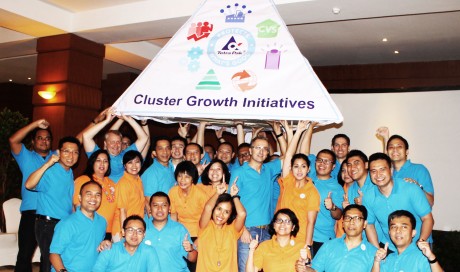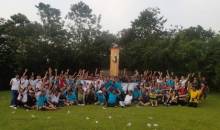- 3886 Views
- 0 Comment
- No tags
Field Studies Module: One-Day Adventure and Jungle Training
Target Audience: Elementary Students, Grades 5 and 6
—
Module Overview:
This one-day field study module is designed to immerse 5th and 6th-grade students in the jungle environment, promoting ecological awareness, hands-on experience with reptiles, nature appreciation, crafting, herbal learning, meditation, and basic cultivation activities. The goal is to foster a deep connection with nature and an understanding of its ecosystems.
—
Schedule and Activities
8:00 AM – Arrival and Introduction
– Welcome and Safety Briefing (15 mins)
– Introduction to the day’s activities and safety guidelines.
– Importance of respecting nature and each other.
8:15 AM – Reptile Hands-On Experience (Ecology Session)
– Reptile Education (45 mins)
– Learn about different types of reptiles found in the jungle.
– Hands-on experience with safe, supervised handling of reptiles.
– Discussion on the role of reptiles in the ecosystem and conservation efforts.
9:00 AM – Nature Walk and Forest Bath
– Guided Nature Walk (60 mins)
– Take a slow, mindful walk through the forest.
– “Nature Nuggets”: Short, interesting facts about plants, animals, and the ecosystem.
– Encourage sensory engagement (sight, sound, smell, touch).
– Some survival skill and knowledge sharing
10:00 AM – Bamboo Crafting
– Bamboo Workshop (60 mins)
– Learn about the versatility and sustainability of bamboo.
– Hands-on crafting session: make simple bamboo items like whistles, small baskets, or frames.
11:00 AM – Herbal Learning and Tisane Brewing
– Herbal Education (45 mins)
– Identify common medicinal plants and herbs in the jungle.
– Learn about traditional uses of herbs for health and healing.
– Tisane (herbal tea) brewing session: harvest herbs and prepare a simple tisane.
11:45 AM – Lunch Break
– Picnic Lunch (45 mins)
– Enjoy lunch in a designated area in the forest.
– Encourage students to observe their surroundings and discuss their morning experiences.
12:30 PM – Meditation in the Forest
– Guided Meditation (30 mins)
– Practice a guided meditation session to connect with nature.
– Focus on mindfulness, breathing, and relaxation techniques.
1:00 PM – Cultivating/Farming Activities
– Gardening Session (45 mins)
– Hands-on experience with planting and caring for a small garden plot.
– Learn about the basics of sustainable farming and the importance of growing food.
1:45 PM – Additional Activities
– Nature Art (30 mins)
– Collect natural materials (leaves, sticks, stones) and create nature-inspired art.
– Discuss the importance of creativity and expression in understanding nature.
– Insect Exploration (30 mins)
– Guided exploration to find and observe various insects.
– Learn about the role of insects in the ecosystem and their diversity.
2:45 PM – Reflection and Sharing
– Group Reflection (30 mins)
– Gather for a group discussion to reflect on the day’s experiences.
– Share favorite moments, new learnings, and personal insights.
3:15 PM – Closing Ceremony
– Wrap-Up and Certificates (15 mins)
– Distribute certificates of participation.
– Final words of encouragement and thanks.
3:30 PM – Departure
– Goodbye and Departure
– Ensure all students have their belongings and are ready for pick-up.
—
Additional Resources
1. Books:
– “The Jungle Book” by Rudyard Kipling
– “Forest Explorer: A Life-Size Field Guide” by Nic Bishop
2. Websites:
– [National Geographic Kids](https://kids.nationalgeographic.com)
– [WWF Wild Classroom](https://www.worldwildlife.org/teaching-resources)
3. Apps:
– Seek by iNaturalist
– PlantSnap
—
Conclusion
This one-day jungle training and field studies module is designed to provide students with a comprehensive and immersive experience in nature. By engaging in various activities such as reptile handling, nature walks, bamboo crafting, herbal learning, meditation, and farming, students will gain a deeper appreciation and understanding of the jungle ecosystem and the importance of conservation.
OUR RECENT
WORKS
-
PT Tanjung Power…TeamBuilding
-
Tetra Pak Indonesia…TeamBuilding
-
Beachwalk BaliTeamBuilding
-
PT Trees SolutionsTeamBuilding
-
PT Trimitra Karya…TeamBuilding
-
PT. Pandega Desain…TeamBuilding
-
PT Multipolar TechnologyTeamBuilding
-
PT Harpackindo OttofleksiTeamBuilding
-
PT System Solution…TeamBuilding
-
PT. Bank Central…TeamBuilding
-
PT Trakindo UtamaTeamBuilding
-
PT. Lumbung Nasional…TeamBuilding
-
PT Surya Toto…TeamBuilding




















































